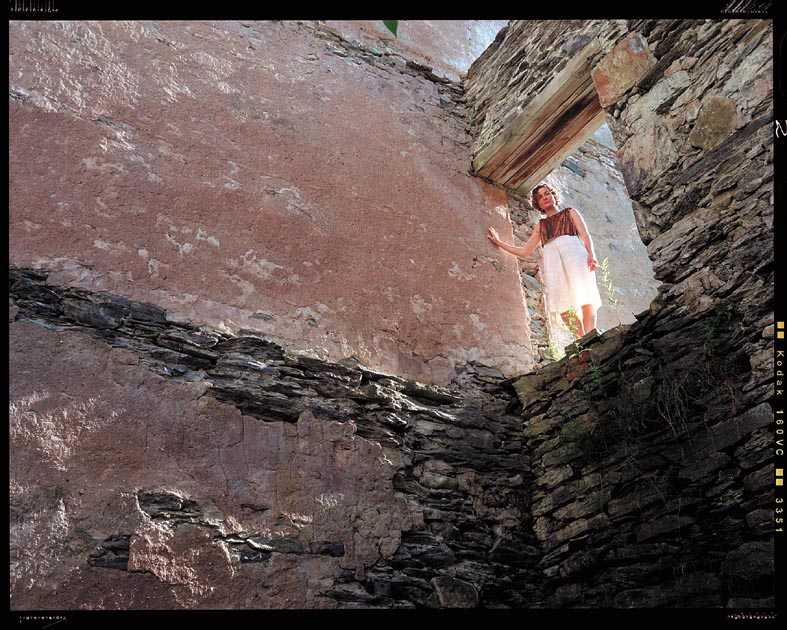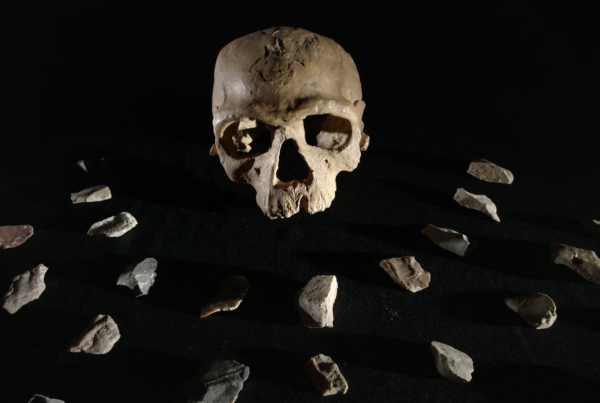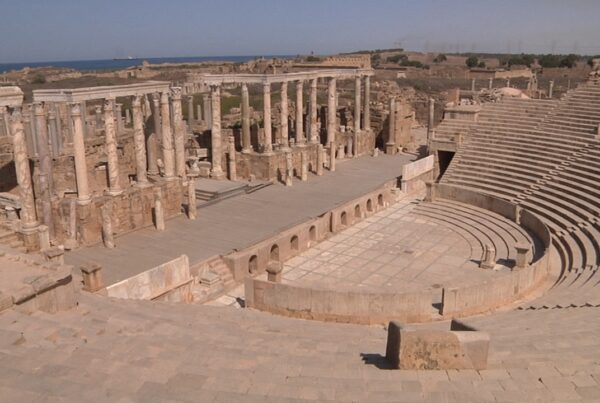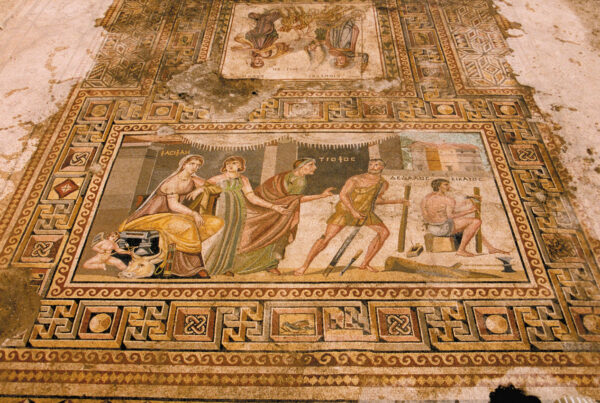In Sophocles’ play “Oedipus Rex” Jocasta hangs herself shortly after finding out that Oedipus is both her husband and son. In Euripides’ play “The Phoenician Women”, Jocasta stays alive a little bit longer to try and reconcile her sons, but stabs herself shortly after they kill each other during the war at Thebes.
But in Kermani’s film, Jocasta stays alive after her sons’ mutual murders to perform a sacrifice to save Thebes, and to satiate Ares’ ancient fury of Kadmos’ slaying of the dragon. Jocasta chooses the creative act of writing over suicide.
Her ritual act remembers that Body is Presence (Plato’s Ousia and Heidegger’s Ereignis) and Jocasta reminds us that she (also known as Iocasta) is related to Io, the Great Cow goddess of Egypt. The origins of writing are sacred manifestations of ousia/hestia, esti/Being. She reverses the taboo of incest, and re-establishes the symbolic image of mother and son.
Jocasta’s sacrifice was inspired by an ancient Persian ritual of ingesting the Word to cure illness.
- Direction: ELISE KERMANI
- Production: MISHINNAH PRODUCTIONS, SIRUS KERMANI







